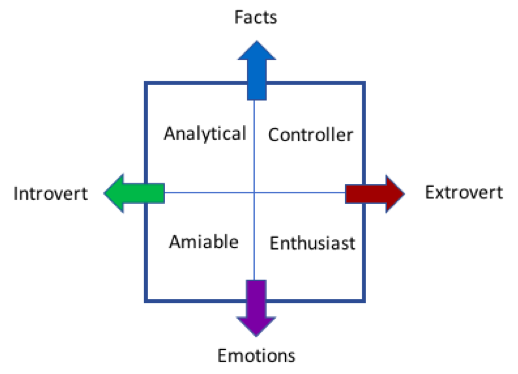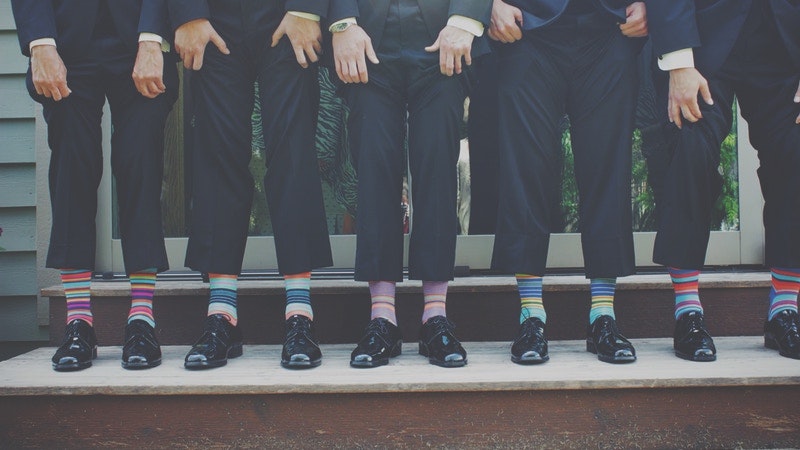Different Types of People
Episode #2 of the course Handling difficult people by Chris Croft
Welcome back!
In Lesson 1, we looked at scripts and gained an understanding of how other people think. Today, we’ll dive deeper and talk about four basic types of people and where the problems come from.
Introvert or Extrovert? Facts or Emotions?
People have varying degrees of extroversion along a spectrum. At one end, you have the shy types who would rather work on their own and have quiet time to think. At the other end, you have the outgoing, talkative types who would rather work fast and make decisions quickly. You’re immediately thinking about yourself, but don’t worry too much about that yet—think about the people you work with: Can you spot the quiet ones and the more outgoing ones?
Then there’s another (independent) axis: how we make our decisions. Some people prefer to use facts: logic and reasons and numbers. For instance, if they are buying a car, they’ll look at insurance, fuel consumption, and resale value. Others prefer to make decisions based on their emotions—they are ruled by their feelings, their gut instinct, their heart.
This gives us four basic types of people:

So, where do the problems come from?
The Diagonals
Usually, the problems happen across the diagonals. Let’s look at this in more detail.
Analytical and Enthusiast. Top left is the Analytical—these people are calm and keen on detail. They need time to make decisions because they weigh up every option. They don’t like risk. Their opposite is the Enthusiast, who is bouncy, quick to decide, optimistic, and loves change and risk. So, the Analytical will think the Enthusiast is hopelessly wild, messy, unreliable, and perhaps even dangerous. At the same time, the Enthusiast will think that the Analytical is boring and uptight.
Now the other diagonal.
Controller and Amiable. Top right is the Controller—they’re tough, decisive, and get to the heart of problems quickly. They don’t suffer fools and don’t want to be held up. Their opposite is the lovely Amiable, the person who cares. Amiables are all about making everyone happy, listening, and building relationships. They will regard the Controller as scary, perhaps ruthless and not very nice. And the Controller will tend to regard the amiable as weak and indecisive.
The situation may look like a deadlock to you. But actually, the opposite types can meet in the middle and complement each other’s weaknesses. We don’t have to like our opposite type or even understand it, but we can work well together.
Homework: Think about who you find most difficult at home and at work. Are they the type that’s diagonally opposite to you?
Tomorrow, we’ll talk about dealing with all four types of people. You’ll also learn how to use their strengths for the mutual benefit.
Chris
Recommended book
Share with friends

